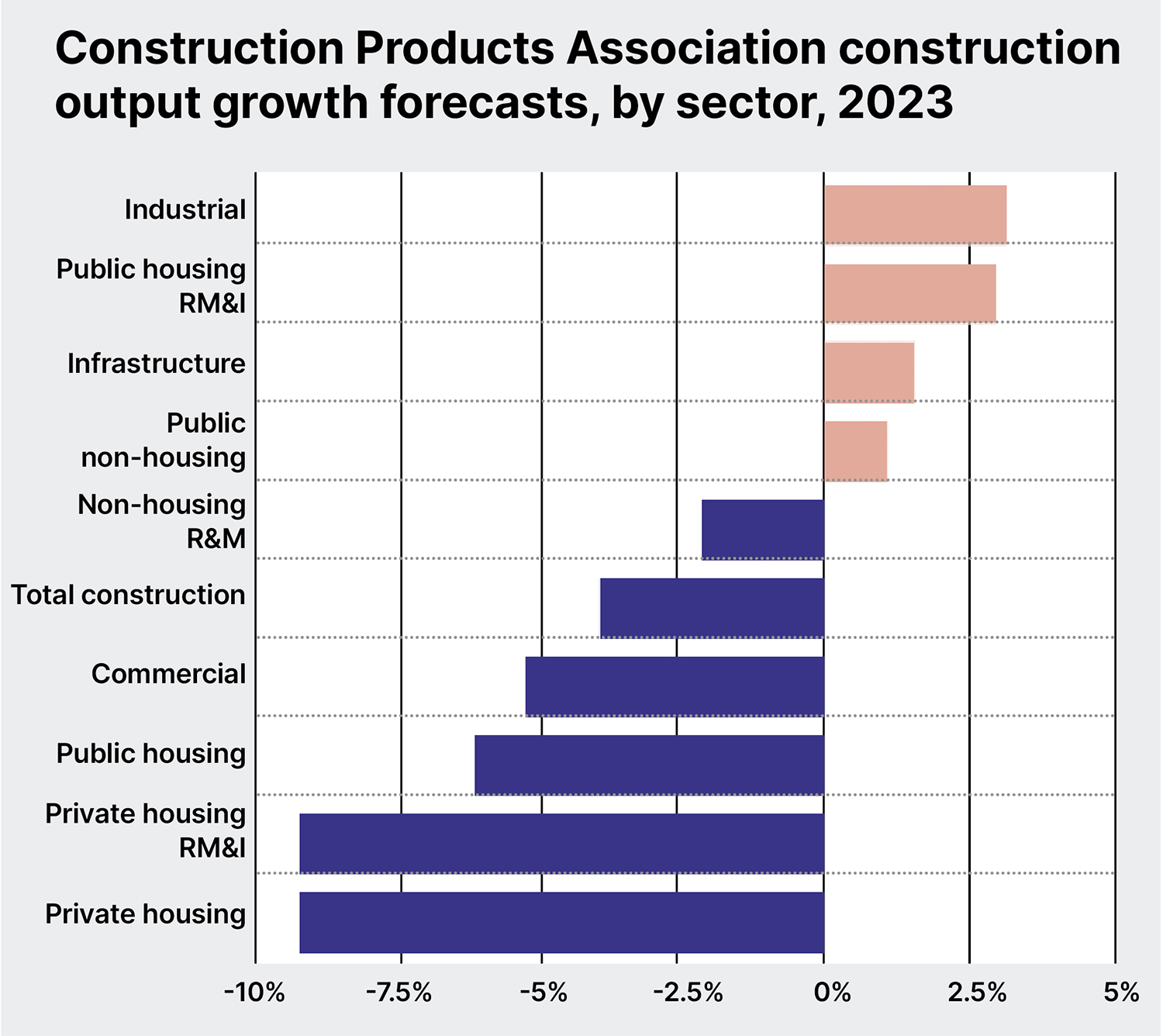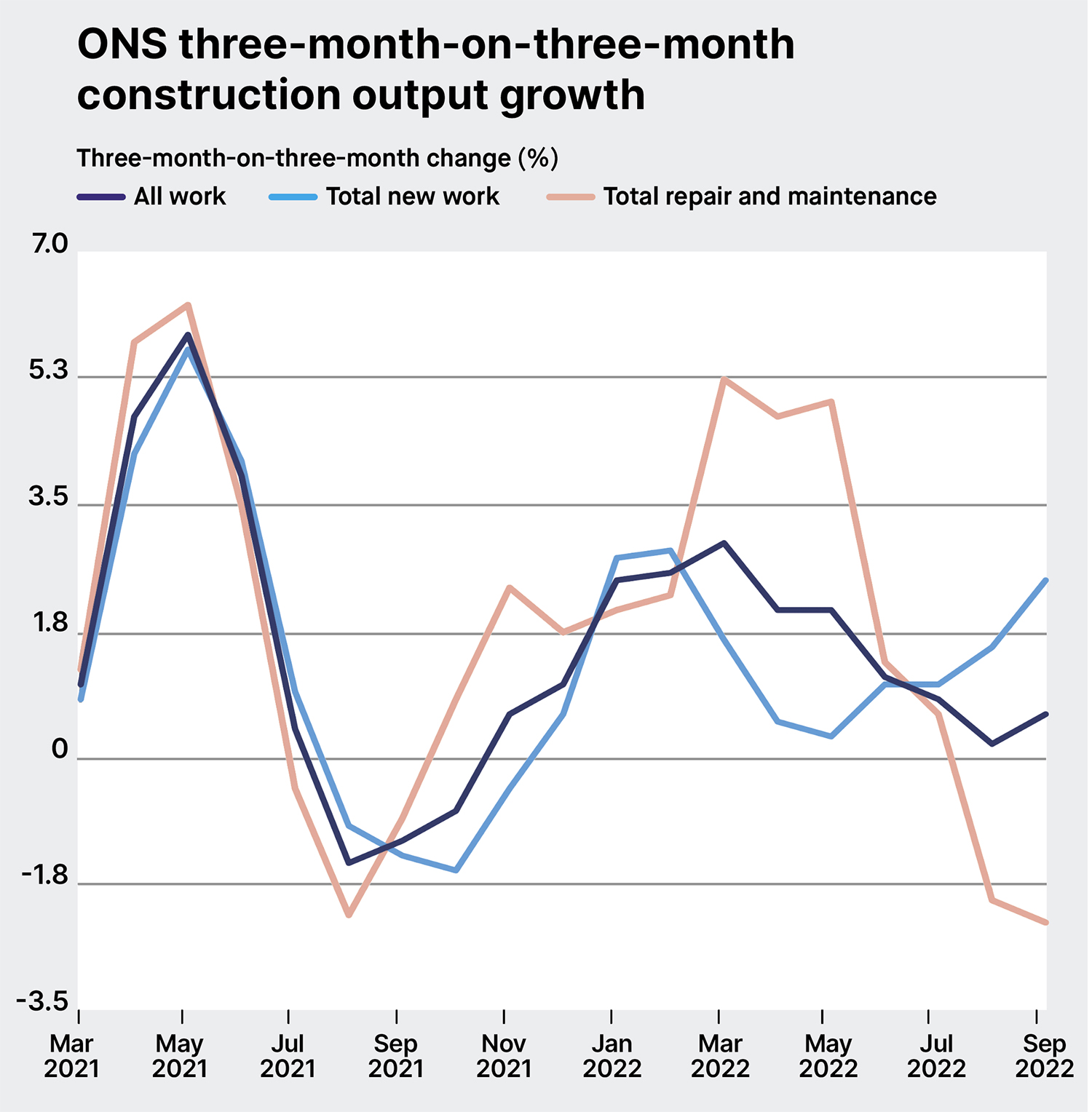
As output growth continues to slow and borrowing costs rise, the challenge for the industry must be on finding ways of improving productivity, says Kris Hudson.
The new budget announced in November from the UK’s third chancellor in as many months has failed to significantly improve the pessimistic outlook of many market observers. As the country enters recession, the construction sector will need to brace itself, while focusing on long-term investment, maintaining relationships and doing more with less.

Construction output growth has been slowing since February, with supply chain disruption and inflation continuing to act as a drag on activity levels. Data from the Office for National Statistics shows that all work construction output growth increased by just 0.6% in September 2022, having steadily fallen from 2.9% growth in the three months to March 2022. This has largely been driven by a fall in repair and maintenance work of 2.2% in September 2022, with these works being delayed or halted due to reduced disposable incomes following heightened food and energy costs.
In the face of rising borrowing costs and economic uncertainty, forecasts also offer few causes for optimism when looking at sector-wide data. On average, the latest construction output forecasts suggest that activity may fall by as much as 4.5% in 2023, softening to a 0.3% decrease in 2024.
Pockets of growth
However, there are still pockets of growth, especially when looking at the Construction Product Association’s industrial and infrastructure outlook. The Sunak government’s re-commitment to a pipeline of critical infrastructure – from HS2 to Sizewell C – brings
a welcome level of certainty that will help these schemes to continue in earnest.

The challenge for construction will now be doing more with less as prices continue to rise. Consumer price inflation is now at a 41-year high of 11.1%, and Turner & Townsend’s latest forecasts of construction tender price inflation for 2022 are 9% for both real estate and infrastructure, as reported in November’s UK Market Intelligence Report. The focus must be on improving productivity. From greater use of digitalisation to strengthening supply chain engagement, the construction sector needs a targeted approach that simultaneously braces for short-term instability while preparing for long-term growth.
Looking ahead, when recession and the higher inflationary environment eventually subside, the clients and contractors who will be best placed to deliver will be those who looked beyond the immediate and focused on building long-term capacity, skills and supply chain relationships.
Kris Hudson is an economist and associate director at Turner & Townsend.











